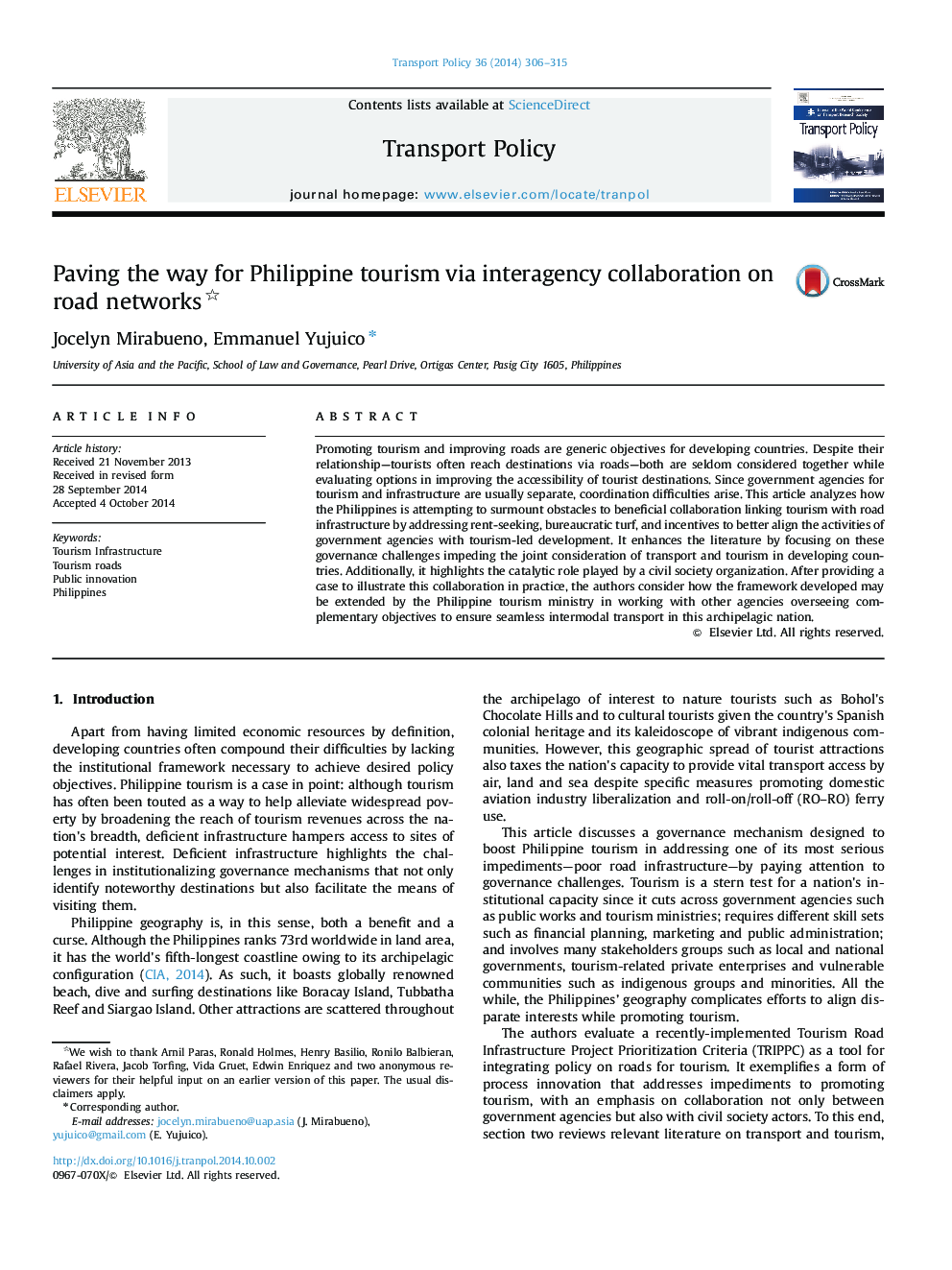| Article ID | Journal | Published Year | Pages | File Type |
|---|---|---|---|---|
| 7497882 | Transport Policy | 2014 | 10 Pages |
Abstract
Promoting tourism and improving roads are generic objectives for developing countries. Despite their relationship-tourists often reach destinations via roads-both are seldom considered together while evaluating options in improving the accessibility of tourist destinations. Since government agencies for tourism and infrastructure are usually separate, coordination difficulties arise. This article analyzes how the Philippines is attempting to surmount obstacles to beneficial collaboration linking tourism with road infrastructure by addressing rent-seeking, bureaucratic turf, and incentives to better align the activities of government agencies with tourism-led development. It enhances the literature by focusing on these governance challenges impeding the joint consideration of transport and tourism in developing countries. Additionally, it highlights the catalytic role played by a civil society organization. After providing a case to illustrate this collaboration in practice, the authors consider how the framework developed may be extended by the Philippine tourism ministry in working with other agencies overseeing complementary objectives to ensure seamless intermodal transport in this archipelagic nation.
Keywords
Related Topics
Social Sciences and Humanities
Social Sciences
Geography, Planning and Development
Authors
Jocelyn Mirabueno, Emmanuel Yujuico,
